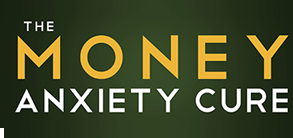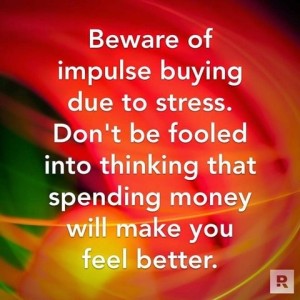Back in 2007, with the recession looming, President George W. Bush offered what may rank as the worst piece of advice any U.S. president has offered his fellow Americans: “Go shopping more.”
 There are plenty of behaviors we should engage in more often — smiling, eating mindfully, stretching our hamstrings — but clicking “Buy now” is surely not among them.
There are plenty of behaviors we should engage in more often — smiling, eating mindfully, stretching our hamstrings — but clicking “Buy now” is surely not among them.
And yet most of us behave as if the former president was on to something. We shop recreationally, habitually, impulsively, and, in many cases, uncontrollably. In fact, 6 to 7 percent of Americans qualify as “compulsive buyers,” according to a 20-year review of studies published in the American Journal on Addictions.
We may feel a temporary high when we make impulsive purchases, but there are serious long-term consequences.
The Hazards Of Impulse Spending
The financial perils of mindless spending are obvious: major debt, an empty college fund, a plundered retirement account, the loss of home or possessions, or the inability to anticipate our future leisure.
And what of the clutter? When we impulsively buy those giant “family” packages of toilet paper for our two-person households, we end up blocking our route to the bathroom.
And when our drawers are overstuffed with t-shirts, we may waste 10 minutes unearthing the single white V-neck we’re looking for. Maybe those were the 10 minutes we’d allotted for a healthy breakfast, a quick workout, or for avoiding rush-hour traffic.
Spending on impulse never feels good, often triggering stress, anxiety, and even more spending. Some impulsive shoppers do so to feel better. Then they feel badly about themselves for the purchase, and go out and buy more things to feel better. It’s a potentially vicious cycle.
Are you ready to stop making hasty, mindless purchases?
The first step is to figure out why you’re doing it.
Have you ever purchased a $200 black sweater in spite of
a) not having $200 to spend
b) already owning three blacker sweaters
c) having no room for it in your closet
- To fill an emotional void. Some people use shopping to counteract a sense of emptiness, fear, guilt, stress, or boredom.
- Because you’re in the habit. Maybe you have an affinity for black sweaters and buy them on autopilot. Sometimes we’re just not present during a purchase and don’t give it any thought.
- To boost your self-image or social status.
- To score a “deal” and prove how business-savvy you are.
Of course, where’s the “value” if don’t need or can’t afford the sweater?
Are you an impulsive shopper? Answer yes or no:
1. Do you shop to feel good when you had a bad day?
2. Does finding a “great deal” get your blood pumping?
3. Do you shop when you don’t need anything?
4. Do you neglect to think about where the money is coming from before you buy something?
5. Do you make large, spontaneous purchases?
6. Do you use your credit limit as a guide for your spending?
7. Do you compare your belongings to those of others or
8. Must you have the latest “in” thing, regardless of your financial status?
If you answered yes to any of these questions, work on becoming more mindful about your purchases. My next article will focus on how to overcome impulsive shopping!

